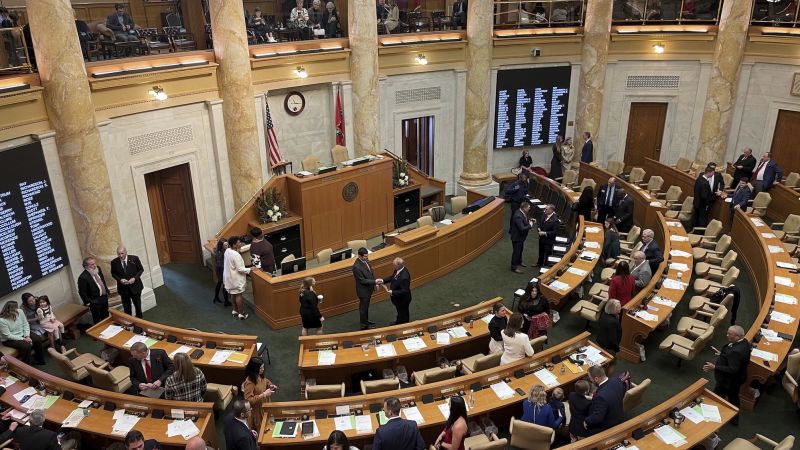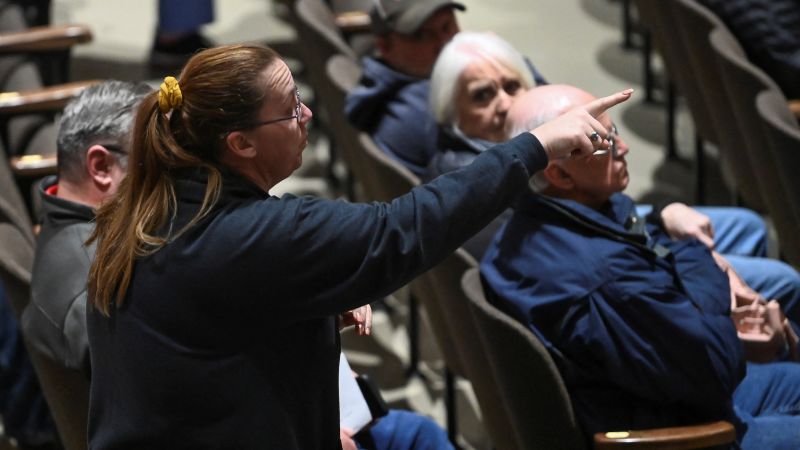
CNN
—
The Arkansas House of Representatives passed a bill on Wednesday that would require social media companies to verify their users’ ages and confirm that minors have permission from a parent or guardian before opening an account.
The bill, dubbed the Social Media Safety Act, was passed by an overwhelming vote of 82-10, according to a tweet from the House account, and adds to the swell of efforts by state and federal lawmakers to regulate social media platforms and protect children online.
The legislation now moves back to the Senate, which passed an earlier version of the bill, for the approval of an amendment before it is sent to Gov. Sarah Huckabee Sanders’s desk.
The recent legislative push from state and federal lawmakers comes amid growing anxieties from many parents struggling to navigate the potential harms of social platforms, including concerns over how they may be introducing young users to harmful content, aggravating mental health issues and creating new venues for online bullying and harassment.
If the Arkansas bill is signed into law, social media companies would be required to use third-party vendors to verify Arkansas residents’ ages – regardless of whether or not they are minors.
For users younger than 18, the platform must obtain the consent of their parent or guardian in order to open an account for them.
The regulations would not apply to businesses with less than $100 million in annual gross revenue.
The proposed restrictions echo parts of a controversial bill signed into law in Utah last month which additionally requires that parents have access to their teens’ accounts, imposes a curfew and bans all ads for minors on social media platforms.
Similar bills have also been proposed in Connecticut and Ohio, where the legislation would require a guardian’s consent for minors younger than 16 to have accounts.
On the federal level, lawmakers have leveled heavy criticisms against tech companies but have struggled to agree on what regulations of childrens’ social platform activity should look like as they weigh several pieces of current and working legislation intended to address potential online harms.
Note:- (Not all news on the site expresses the point of view of the site, but we transmit this news automatically and translate it through programmatic technology on the site and not from a human editor. The content is auto-generated from a syndicated feed.))



